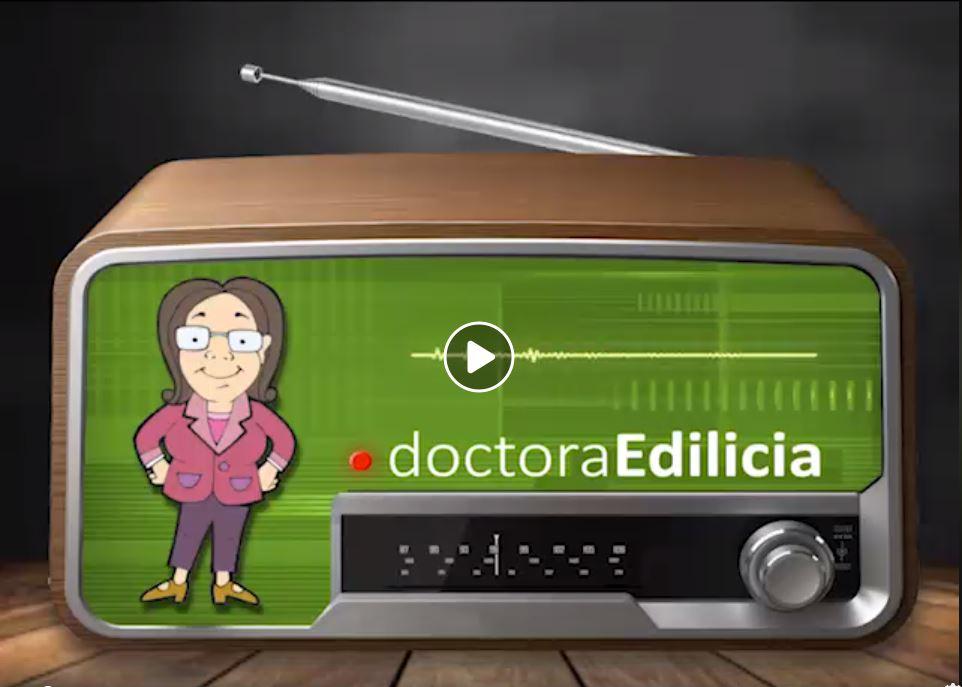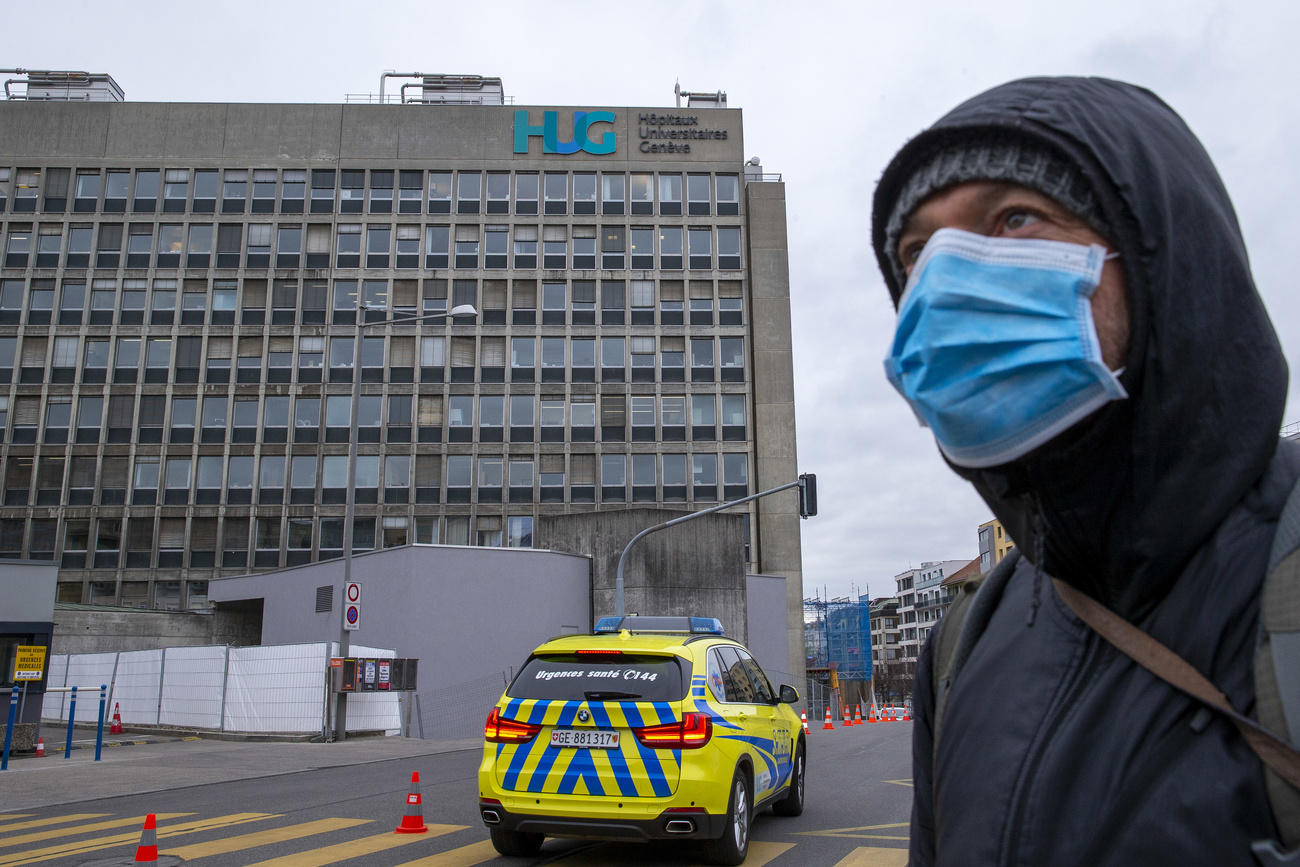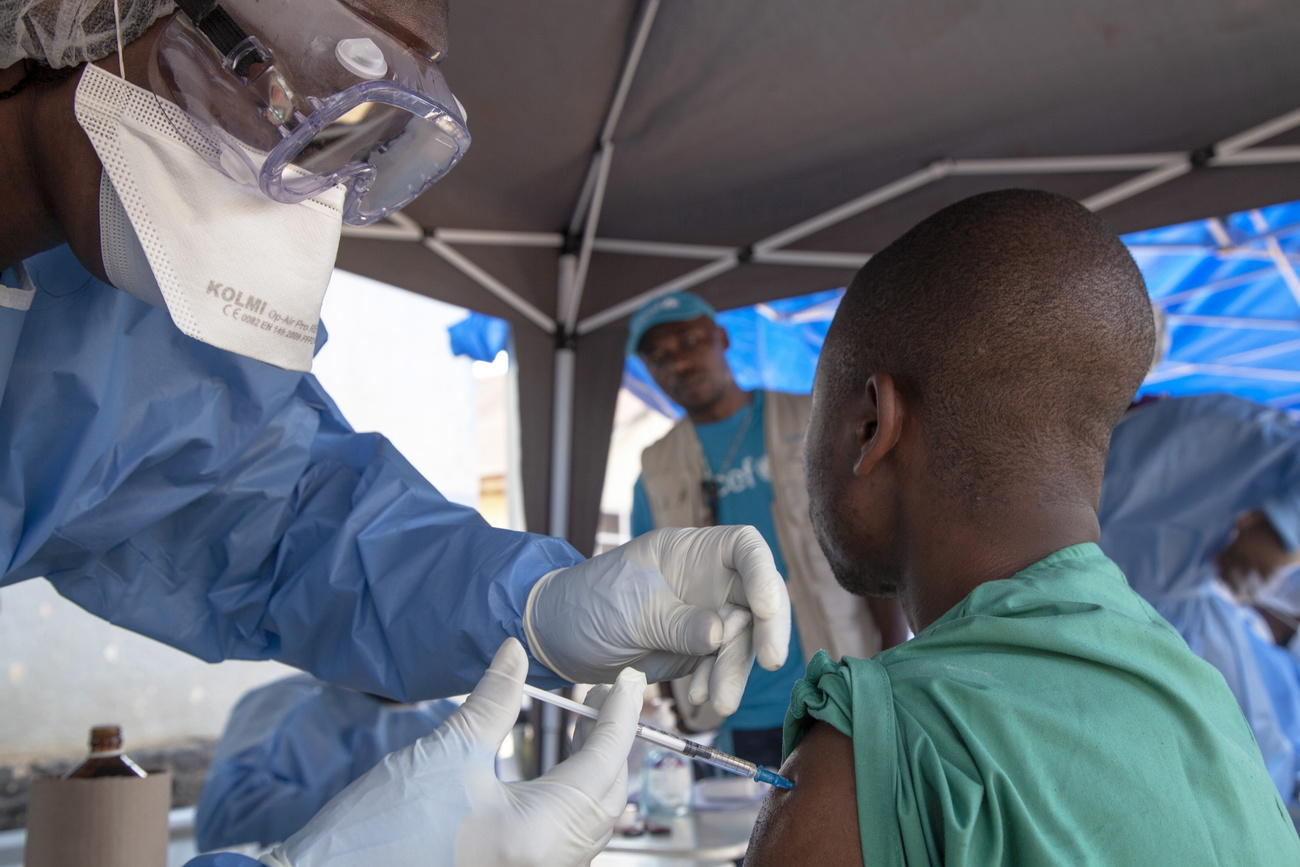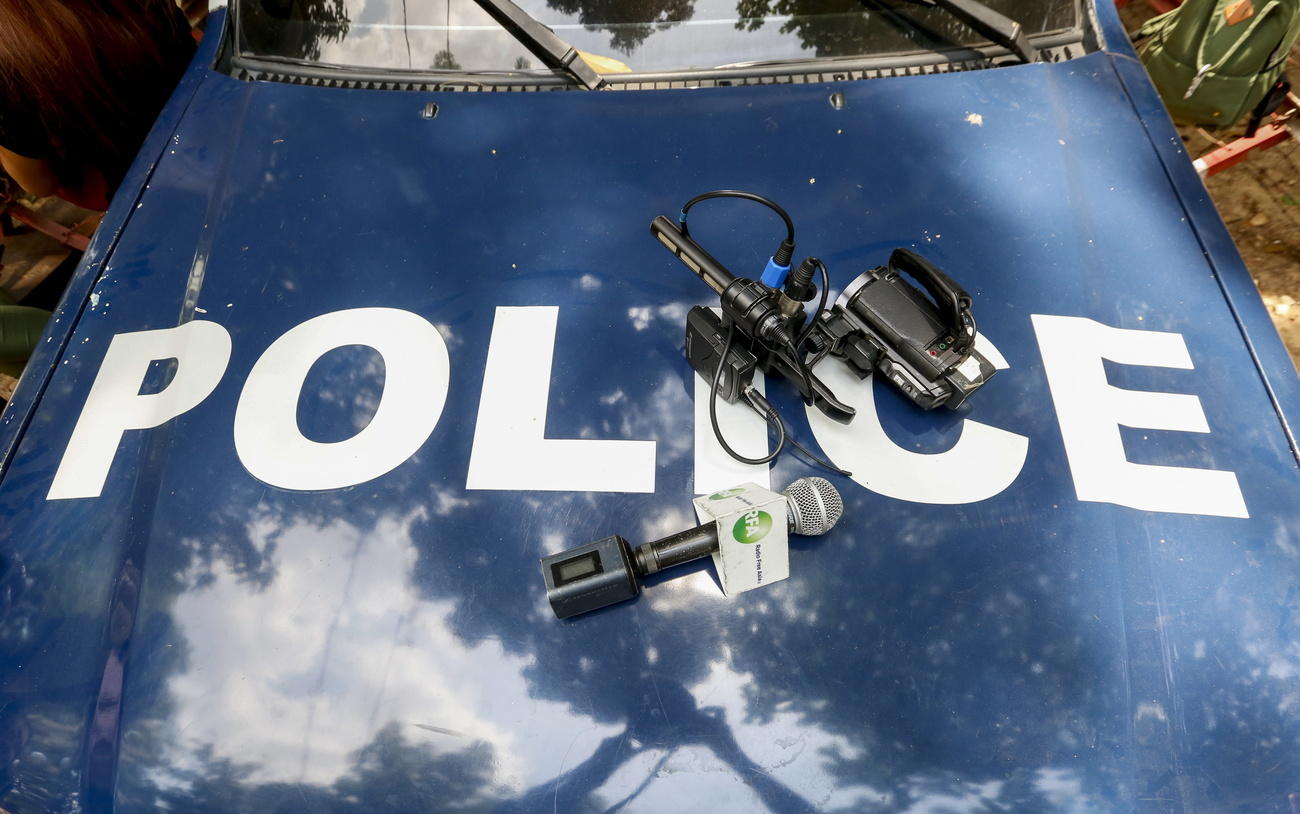Swiss aid groups help counter fake coronavirus news

In Africa and Latin America, rumours and misinformation are spreading as fast as the coronavirus. Swiss development and humanitarian organisations have stepped up efforts to protect the population and counter fake news with focused media projects.
Some examples of the misinformation being spread are:
- “The virus cannot survive in Africa.”
- “A preacher said he can cure Covid-19.”
- “Coronavirus only attacks the weak.”
- “The virus is a Western invention.”
Almost every African and Latin American country has reported infections and deaths from the virus. While the numbers are comparatively low at the moment, several countries have already imposed curfews. They fear an infectious tsunami that would overwhelm local health care systems. The new and old (pre-internet) media are the only source of reliable information, particularly during curfews.
The Swiss organisations spearheading the media projects, Solidar SuisseExternal link and Fondation HirondelleExternal link, have decades of field experience to fall back upon. Their aim is to help fight the spread of the virus, along with the plethora of “fake news” and unfounded rumours surrounding it.
Established credibility
For example, Solidar Suisse, which strives for a fairer society and living wages, is intensifying its hygiene campaigns. These were already underway before the virus spread, in all affected countries of operation.
More
In Bolivia, Solidar Suisse is using a cartoon figure created 16 years ago, “Doctora Edilicia”, to disseminate vital messages and information concerning the pandemic. Because the organisation had raised its profile over the years by providing information on topics such as democratic rights or violence against women, it “now enjoys a very high level of credibility”, says Klaus Thieme, Head of Development Cooperation at Solidar Suisse. “This is essential in the current situation.”
In many countries of operation, misleading information about the cause and treatment of Covid-19 is being spread by different sources, says Thieme. “Sometimes through government sources, sometimes from charlatans and religious fanatics, but also simply through the blithe sharing of rumours by the population.”
The Doctora is in
The cartoon figure Doctora EdiliciaExternal link counters this misinformation on Facebook, in radio spots, and in newspapers. She is supported by another Solidar Suisse project, Bolivia Verifica, which checks news for accuracy and communicates fact-based information through Doctora Edilicia, among others.
On Facebook, the Doctora explains to a teenager that the virus does not only affect the “weak”. In a radio spot, she talks to a woman about why hygiene measures are important. Her message – “I don’t think you want to be an ally of this virus” – is broadcast with the hashtag #DeVosDependemos (“We rely on you.”).
The Doctora is also aware of what the curfew means for the many women in Bolivia who are now confined with violent partners all day. She calls on people to get in touch with women in need who live nearby and shares contact numbers and places where women can get help. “Urge her to get help, and help her so she doesn’t feel alone during these times.”
Ample misinformation
In the countries where Fondation Hirondelle is active, the list of examples of misinformation being spread is “unfortunately very long”, says Caroline Vuillemin, head of the Lausanne-based foundation which focuses on responsible journalism in crisis situations.
Hirondelle has been working for 25 years, mainly in francophone Africa, where a number of scurrilous rumours are now circulating, such as:
- “The virus is an invention of the West in order to carry out mass vaccinations.”
- “The virus is an invention of our government so we can get United Nations funds.”
- “You only have to shave your beard to protect yourself from Covid-19.”
- “You just have to consume hot drinks every day.”
The radio stations and production studios that Hirondelle has built up over the years are now being used to broadcast fact-based news and information about the virus. The foundation’s work is concentrated in fragile and conflict-ridden countries, where reliable news is often scarce. “We have run cross-national campaigns before, but this is the first time we have been confronted with such a global crisis affecting all of our partner countries at the same time,” says Vuillemin. “This campaign is one of the biggest we have run since we were founded.”
Good information for all
From Burkina Faso to the Central African Republic, from Niger to Madagascar, Fondation Hirondelle studios and radio stations produce and broadcast bulletins several times a week with information on codes of conduct and hygiene measures. Listeners are encouraged to call radio talk shows with their questions.
At Studio Hirondelle RDC in the Democratic Republic of Congo, journalists are using social media channels to reach the population with its messages. “The virus is real. It kills. It’s not racist. It hits whites and blacks. Poor and rich. Politicians and celebrities,” says a young reporter in a YouTube clipExternal link. “Be responsible. If everyone protects themselves, we are all protected.”

Established journalistic rules and fact-checks are central to the work of the journalists in all programmes, said Vuillemin. “Our aim is to reach less well-educated people with timely and comprehensive information and awareness campaigns, which is why we produce content not only in French but also in local languages.”
This is particularly important in African countries already weakened by other crises and conflicts. In these countries the pandemic and the associated “epidemic of misinformation” could fuel conflicts or cause them to flare up again, said Vuillemin.
“We want to give all sections of the population a voice and promote dialogue. The broadcasts should accompany people especially in this period of isolation and promote solidarity among the population.”

More
Coronavirus: the situation in Switzerland
Translated from German by Kathleen Peters

In compliance with the JTI standards
More: SWI swissinfo.ch certified by the Journalism Trust Initiative











You can find an overview of ongoing debates with our journalists here . Please join us!
If you want to start a conversation about a topic raised in this article or want to report factual errors, email us at english@swissinfo.ch.